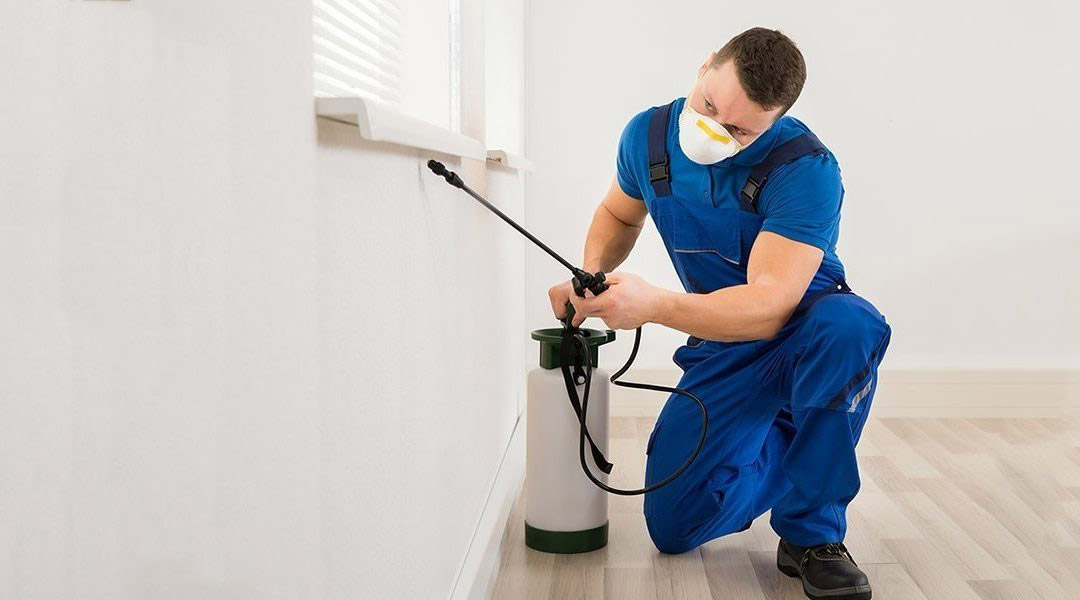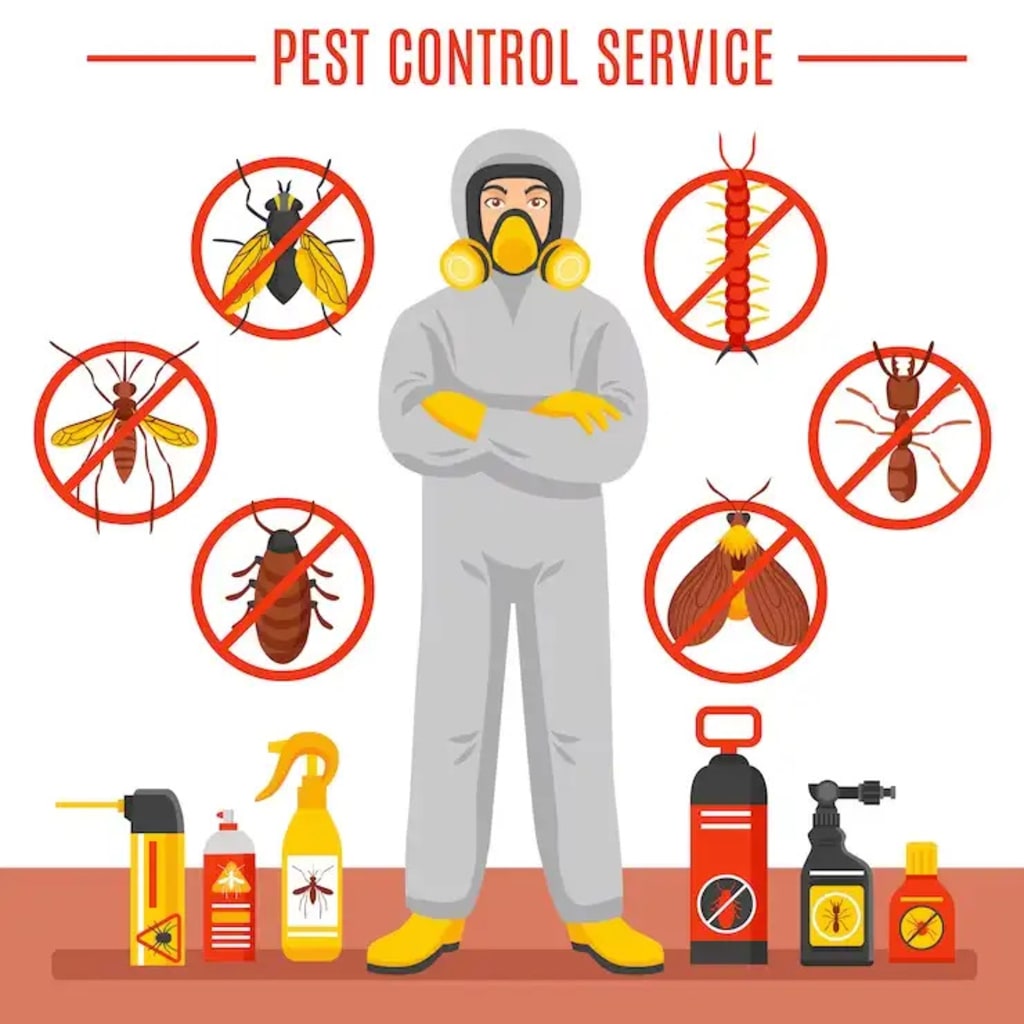The 5-Second Trick For Pest Control
The 5-Second Trick For Pest Control
Blog Article
Pest Control - Truths
Table of ContentsThe Greatest Guide To Pest ControlThe Definitive Guide for Pest Control9 Easy Facts About Pest Control DescribedLittle Known Questions About Pest Control.The smart Trick of Pest Control That Nobody is Talking About
Water (moisture) is considered a conducive problem that will motivate insect infestations and can likewise result in inadequate air quality inside. Eliminate tree and/or shrub branches that are touching the outside walls or roof covering of a home because bugs, including rodents and ants, frequently utilize them to locate a method right into the home (Number 6).
Get rid of or frequently emptying water-holding containers that supply insect reproducing websites. Check the within your home and getting rid of areas where insects can hide and breed inside your home. Get rid of cardboard boxes and sealing books and other paper things in plastic covered containers. Keep food in sealed containers, consisting of pet dog food.
When a bug has actually been regulated, it does not imply the work of pest control has finished. Parasite control ought to be considered a part of routine home upkeep, specifically in states like Florida experience hefty pest pressure. Regularly employing a preventative method to pest control making use of monitoring can save cash and stop damage to your home and the goods kept within.
Yard and ornamentals (L&O). Airing out. Business are required to have a qualified operator in each of these classifications if they are supplying these solutions. What is the "qualified operator?" The certified operator is a person that has actually met the state demands to exercise pest control (Pest Control). Certified drivers have to pass a state exam in a certain classification of bug control.
The Only Guide to Pest Control
The state meaning is an "private holding an existing insect control operator's certification released by the department." (FS 482.021). That is the "certified driver in-charge?" The certified operator in-charge is accountable for the everyday operations at the area of the pest control company. He or she is responsible for selecting the strategies and products used in servicing your home.
What are the needs to end up being a technician? After being worked with by an insect control business, the licensed operator in-charge has up to one month to get a recognition card for the new specialist with FDACS. Within six months of hire, the technician is needed to contend least 40 hours of recorded training.
The other hours are in undefined subjects within the groups of general family insects, termites and wood-destroying microorganisms (WDO), and lawn and decorative parasite monitoring. After the first training, the technician is called for to have two hours of training every year (Pest Control). Records has to be kept by the firm and readily available to FDACS for review upon request
Examine This Report on Pest Control
Here are some of the crucial benefits of this approach: Single insect control services are made to attend to a specific bug concern handy. It's perfect for those who are managing a single, separated problem and want a quick resolution. In a lot of cases, a single solution is much more economical than a long-term pest control plan.
If you're taking care of a pest emergency, a single service can provide prompt alleviation. Pest Control. Bug control specialists will certainly do something about it to get rid of the bugs instantly. There are no legal obligations or reoccuring payments connected with an one-time solution. When the pests are gone, the service is full. A parasite control plan, on the various other hand, entails a recurring relationship with a pest control supplier.
Right here are the vital attributes and benefits of pest control plans: linked here Pest control prepares offer recurring, Get More Info year-round protection versus a variety of bugs. They are perfect for property owners that wish to stop invasions and maintain a pest-free environment. These strategies generally entail set up check outs from specialist pest control specialists who inspect, treat, and check your property throughout the year.
Bug control plans are positive in nature. They aim to find and address parasite concerns prior to they come to be full-on invasions.
Our Pest Control Ideas
They supply a thorough approach to pest management. By buying an insect control strategy, home owners acquire assurance, recognizing that their property is secured year-round. This approach can be specifically important for those in locations prone to repeating insect issues. The option between an one-time bug control solution and a parasite control plan greatly depends upon your distinct circumstance.
Nonetheless, if you're seeking long-term prevention and peace of mind, a parasite control strategy is a sensible financial investment. Take into consideration variables such as the kind of pests you're managing, your area, your budget, and your long-term goals for pest administration. It's frequently a great concept to seek advice from a trustworthy insect control company to review your options and get specialist guidance in making the best option for your home.

About Pest Control
The Home Shield Pro plan is a full-service choice for bigger homes starting at 3,000 square feet., Ticks, Fleas, and Painful Bugs.
Just like the other strategies, the Home Guard Complete offers year-round protection from bugs, includes interior and outside evaluations and therapies, and treatments for exterior pests like mosquitoes, ticks, and fleas. It also quits termites from preying on and ruining your home!: Hassle ants, Carpenter ants, Centipedes, Cockroaches, Earwigs, Millipedes, Computer Mice, Silverfish, Spiders, Fire Ants, Mosquitoes, Ticks, Fleas, and Painful Bugs AND ALSO Termites.
Report this page